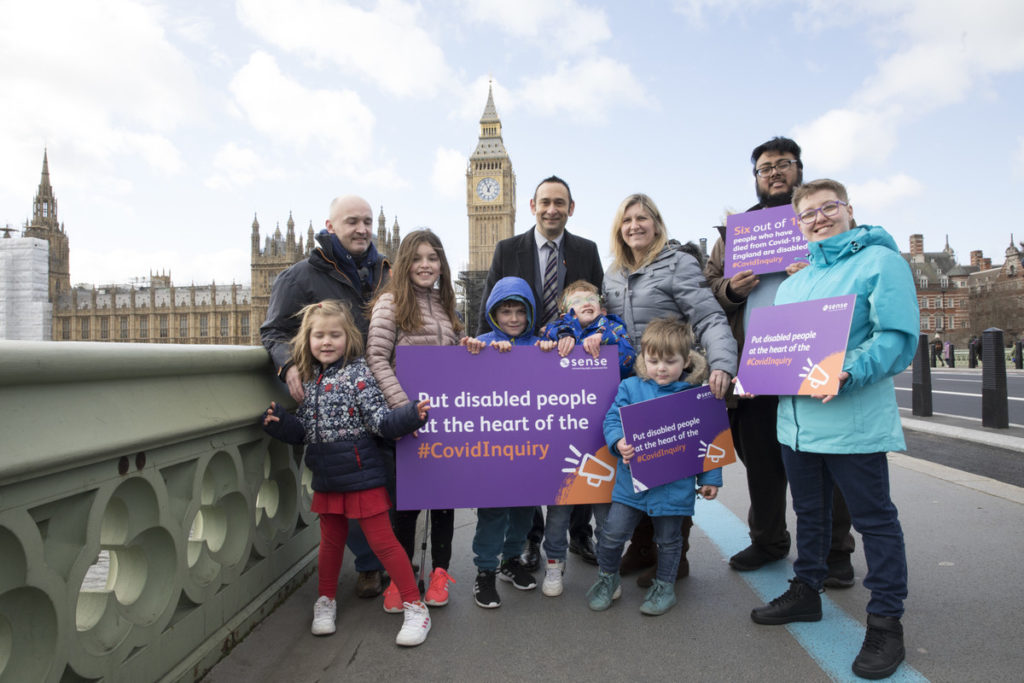Why the Covid-19 public inquiry must be accessible
Eric is 57, lives in Salford with his partner Charlie and is deafblind. He shares why it’s so important that the government delivers next year’s public inquiry into Covid-19 in an accessible way.
I’ve had hearing problems for most of my life and have relied on lipreading. But it wasn’t until I was 29 that doctors diagnosed me with Usher syndrome – a genetic condition that causes progressive sight and hearing loss.
My disability means that sometimes it’s difficult for me to advocate for myself or communicate with others. I often rely on emails and texts. It’s vital that information is presented to me in an accessible way. Otherwise, I miss out on important updates.
Throughout the pandemic, I’ve really felt that my needs as a disabled person haven’t been prioritised. It’s been a really difficult 18 months. Now, many of the safety precautions have further isolated disabled people like me.
Even the most basic of tasks became challenging
When the pandemic hit, it became impossible to see a doctor. My scheduled appointments were cancelled and moved to phone calls without any alternative. I can’t use the phone so couldn’t reschedule them. I’ve had to miss a lot of them or rely on my partner Charlie to communicate with the GP.
Not being able to access basic healthcare has made me feel cut off. I’m worried that I won’t be able to access GP appointments in future if they continue to be over the phone.
During lockdown, even the most basic of tasks became a challenge. Despite being on the priority shopping list, it was impossible to get a supermarket delivery slot and in the end we had to go out. My hearing and sight impairment means that I can’t socially distance as others would, so can’t keep myself and others safe. Leaving the house was a real risk for us, but we had no choice.
There’s been no information for those who can’t follow safety measures. It’s made me feel even more isolated. If I didn’t have Charlie, it would have been impossible to get through this past year.
They’ve made decisions without thinking about disabled people
Throughout the pandemic, it seems like no one has thought about disabled people. I saw briefings without interpreters. I received letters in formats that I couldn’t read. I’ve been failed.
I’m passionate that next year’s public inquiry into Covid-19 is accessible. Many disabled people have already been cut off from important information and guidance. We must be involved and engaged in the inquiry if we want to prioritise the needs of disabled people in future.
I’m joining Sense and calling for disabled people to be at the heart of the Covid-19 inquiry.

Add your name to the petition
Take action now to help make sure disabled people aren’t left out of next year’s inquiry.
